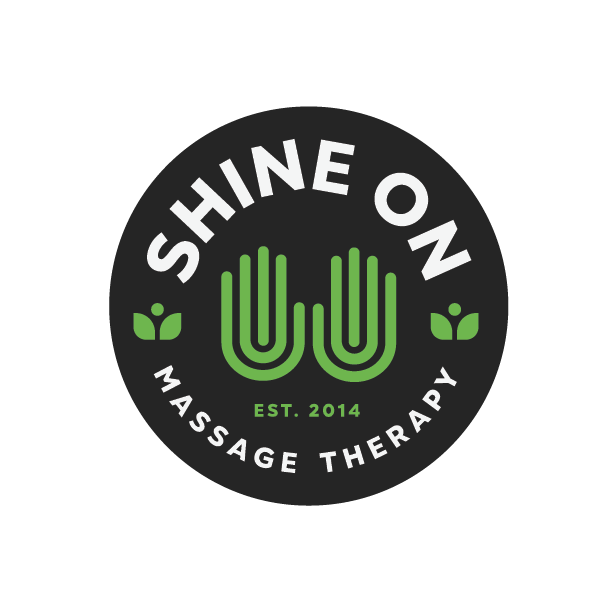Muscle Tension Caused By Trapped Emotions
Muscle Tension Caused By Trapped Emotions
Emotions are often an overlooked element in overall muscle tension. Usually, stress is the main word used when describing ones tension but it is a general term. Below describes what and where it means to feel your feelings. Check it out!
1. Shoulder Tension = Burdens and Responsibilities
When we feel weighed down by the stress of life, we tend to accumulate these feelings within our shoulders. Ever heard the expression “carrying the weight of the world on your shoulders”? Shoulder tension seems to be intimately linked to social and emotional responsibilities, including unconsciously carrying the burden of other people’s pain. As such, many empaths, healers, and caretakers struggle with chronic shoulder muscle tension.
2. Neck Tension = Fear and Repressed Self-Expression
Neck tension is often connected to throat chakra issues such as the inability to communicate clearly or be your authentic self around others. Fear and anxiety are also frequently stored in this area, particularly as a physical response to danger (as the neck is a vulnerable area) or strange environments. Neck muscle tension is also related to trust issues.
3. Upper Back = Grief, Sorrow, and Sadness
Unexpressed and unreleased sadness tends to build up within the upper back region. As this area is close to the heart, it is also where emotions connected to heartbreak and loss are stored. For instance, if you carry around grief regarding a loved one or your family at large, you will likely feel tense in this area.
4. Middle Back = Insecurity and Powerlessness
Healing traditions such as reflexology link middle back pain to feelings of helplessness, hopelessness, and insecurity. If you’re feeling unsupported by other people or life, you probably carry tension here.
5. Lower Back = Guilt, Shame, and Unworthiness
Lower back issues often correlate with feelings of low self-worth and lack of self-acceptance. Feelings such as guilt, shame, and even sexual inadequacy or trauma can be stored here as well.
6. Stomach = Inability to Process Emotions
The expression “I can’t stomach it” appropriately describes stomach muscle tension. If your stomach feels stiff or sore, you might struggle to process both negative (and even positive) emotions.
7. Inner Thighs = Fear of Vulnerability
Are you nervous and untrusting around other people? If you struggle with social anxiety, you might also have inner thigh pain. Because our legs are biologically programmed to run when we first spot danger, fear towards others is often stored here.
8. Outer Thighs = Frustration and Impatience
How fast do you live life? The more quickly and mindlessly you live, the more likely you have frustrated and impatient energy stored in your outer thigh muscles. Our jobs and personal lives can also contribute greatly to muscle tension in this area.
9. Buttocks = Anger and Rage
How often do you have to deal with people who are a “pain in the bum”? Anger and suppressed rage are often stored in the buttocks. Pay attention next time you feel your head boil: is your but tensing up as well?
Now since you have that knowledge, here is how to heal and release those trapped emotions:
Allow yourself to “feel it to heal it.” One of the easiest ways to let go of muscle tension is to actively feel and let go of emotions when they come. Of course, this is not always possible, so at the end of every day, make sure you allow yourself the space to feel the emotions you’ve had through the day. Feeling these emotions might involve crying, punching or screaming into a pillow, or any other form of catharsis.
Adopt an attitude of non-judgement. When we judge our emotions as something “bad” or “wrong,” we actually deepen our suffering and solidify the tension within our muscles. Instead, simply realize that an emotion is an emotion. It doesn’t need to mean anything about you unless you let it.
Be gentle with yourself. Muscle tension tends to add to our negative inner voices which cause us even more tension. To break this cycle of the body feeding the mind and the mind feeding the body, be kind towards yourself. Treat yourself as you would a child or best friend. This practice is a simple but profound way to relax.
Stretch your muscles. Do simple stretches or try yoga to relax your muscles. Even just five minutes a day is beneficial.
Breathe deeply. Shallow breathing causes a restriction in air, blood flow, toxin removal, and increased anxiety. Deep breathing stimulates the vagus nerve which calms the mind.
Get a massage. Book with us at Shine On. Online booking is available or call us at (910)508-9383. Complementary Hot Towels, Hot Stones, and Aromatherapy with every session,
Meditate. Meditation is a great way to become more present and conscious of muscle tension as it arises.
Sources:
https://lonerwolf.com/muscle-tension/
